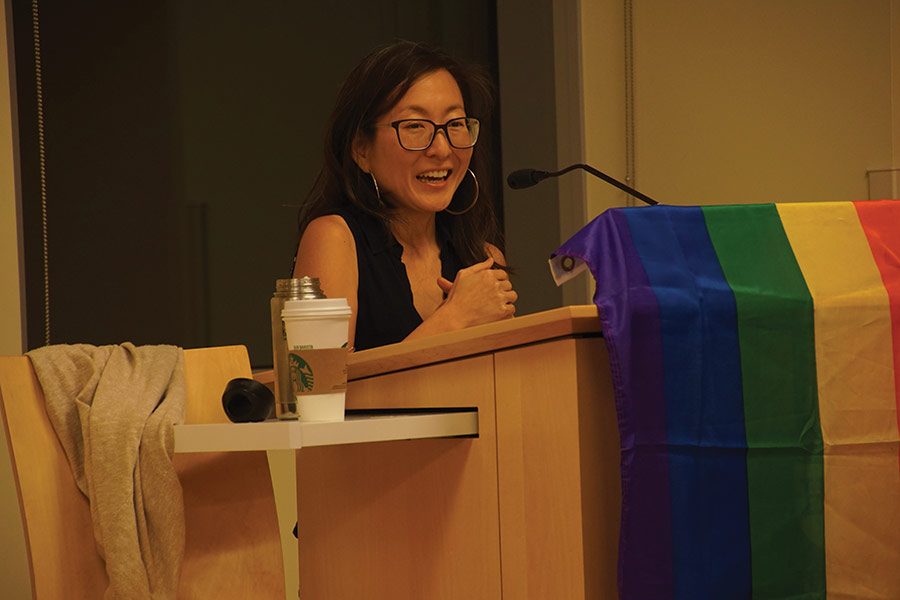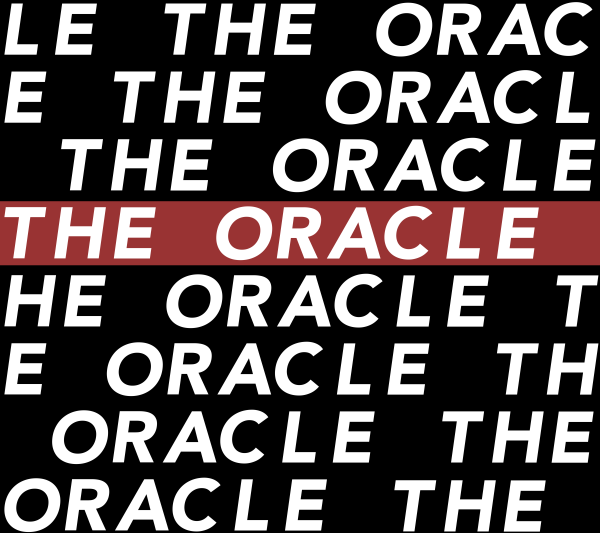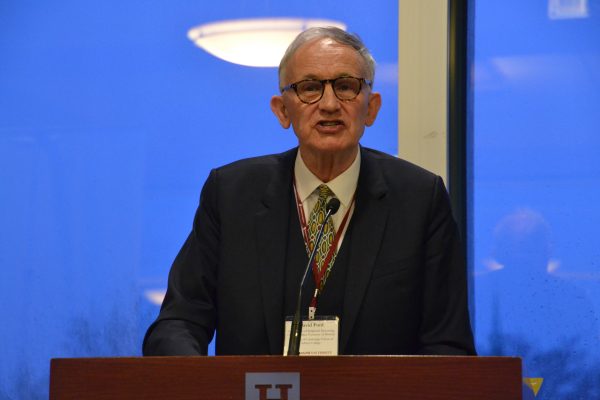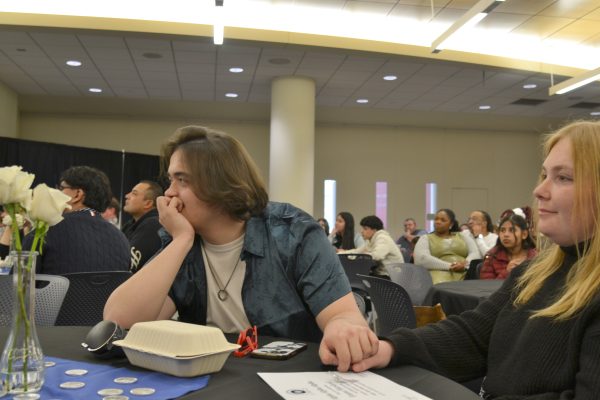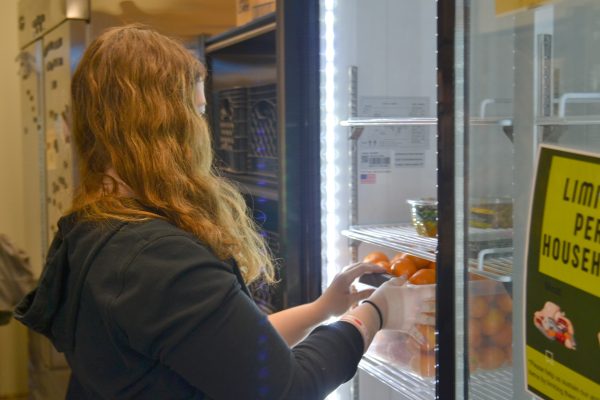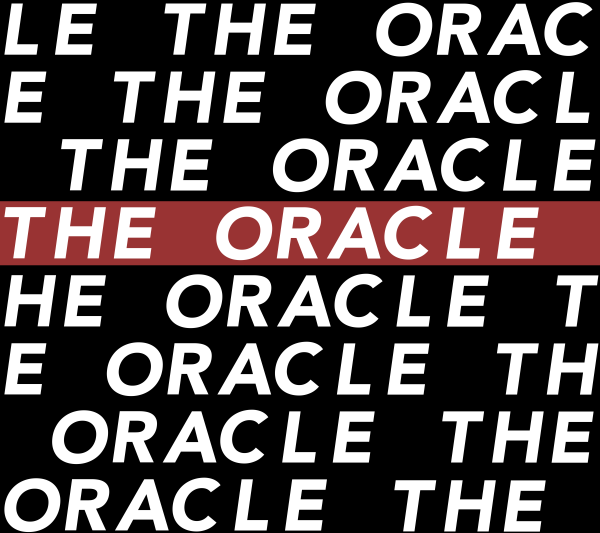Magnificience in our multiple identities
Mia Mingus talks about the multiple identities she has during Coming Out week.
Guest speaker Mia Mingus discusses her identities during coming out week.
October 19, 2016
Queer, Korean and disabled woman are only a few identities that Mia Mingus has pride to talk about to make a change in this world. Mingus talked about how amazing it is to be able to choose ourselves as well as each other. She focused on coming out and having many identities last Thursday night.
This wasn’t the only event Spectrum, the LGBTQIA+ organization on campus and Sexualities and Gender Diversity, hosted during Coming Out Week last week. They also hosted a vigil for students to talk about their coming out stories, a queer sex-ed night to learn about barriers and other self-care tactics, and Mingus also did a disability workshop about self-care.
Mingus’ lecture was co-hosted by various organizations on campus to help spread the word and show the organization and Coming Out week their support. Disability Resources, FUSION, Asian Pacific American Coalition and Chronic Illness Awareness and Support Group all helped put this event together.
Mingus opened up with thanking and appreciating everyone that made the event happen. She thanked the people who have given up things for us to be there, the freedom fighters and our ancestors.
“I speak knowing all of our voices are important,” Mingus said.
Then, she took a few moments for everyone to get present in the room and for the audience to leave worries, thoughts and feelings behind us so we could be in the present moment.
“Remember what matters most to you and why we are here in this room.” Mingus said.
Once she began her lecture she didn’t stop. She talked passionately about how we need to work to end violence, feel comfortable in our own skin and to turn towards each other instead of against one another.
“Coming out for me was like coming into my existence.” Mingus said.
She explained how learning your identity and becoming who you are is one of the most magnificent things a person can do.
“Magnificence is about resistance and resilience,” she said.
Her queerness and disability were the next big topic that she covered.
“The understanding of my disability made me understand my queerness and the understanding of my queerness made me understand my disability,” she said.
Mingus talked about how she realized she was queer and disabled around the same time in her life and she can’t have one without the other. She can’t talk about one without talking about the other. They are so hand-in-hand.
“Queerness is the kind of love that is sacred and vulnerable; not the romance that is fed to us in the movies,” she said. “I don’t believe the lies capitalism has sold me.”
Mingus explained what queer love meant to her and what it should be seen to people all over instead of the stereotypes that are presented in today’s society.
She ended with, “Queer love is magnificent, it can never be broken and can never be destroyed.”
Mingus and Acting Director Office of Multicultural and Diversity Initiatives, t. aaron hans met years ago at an LGTBQIA+ conference. That is how the organizations got to have her here for Coming Out week.
“Mia inspires me to remember that we need to focus more on love, supporting each other both in kinship communities and in communities of care and that we really need to think more broadly about supporting each other to come into ourselves and our identities.” hans said.
After her lecture, she stayed for some Q&A and comments from the audience.
“There was not a single minute when I was not resonating with you.” Junior Hattie Hsu said.
Another student asked Mingus her own definition of queerness and what it means to be queer. She went on for a little bit because to her it is such a broad topic to talk about.
“Queerness isn’t just about who you are attracted to, it is about love.” Mingus said.
Mingus is an activist for every single one of her identities and reflects on what our society has told us. She ended with, “We can be human together, how can we do that?”

